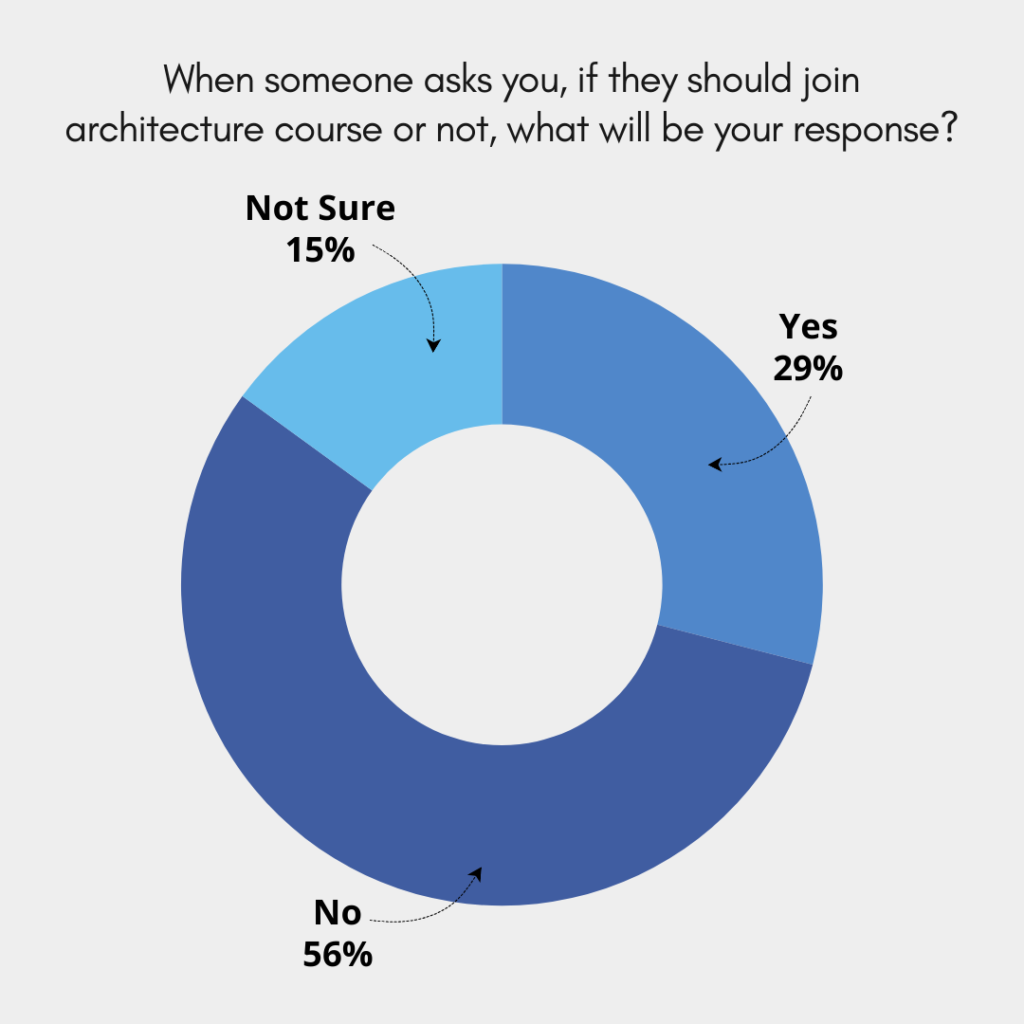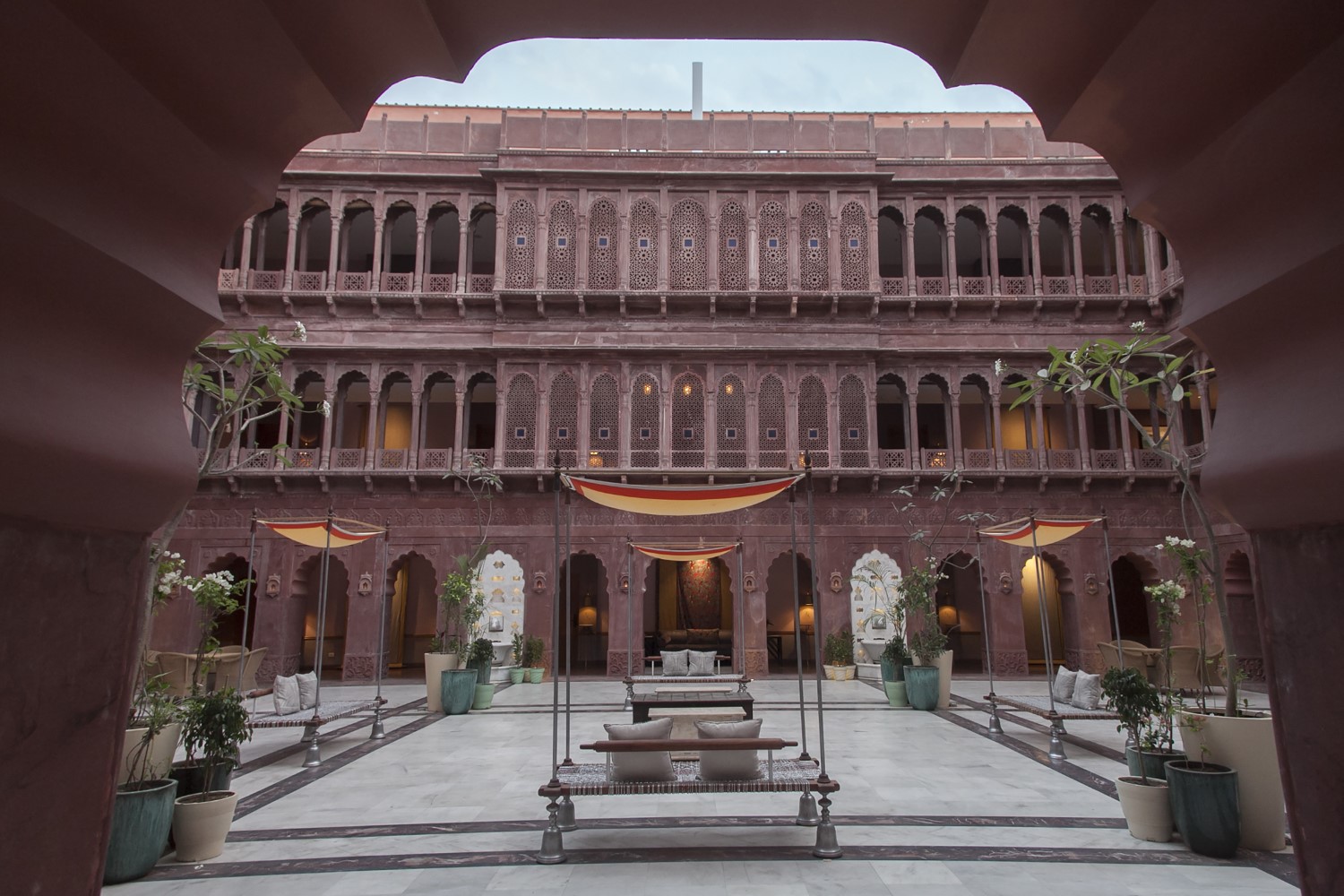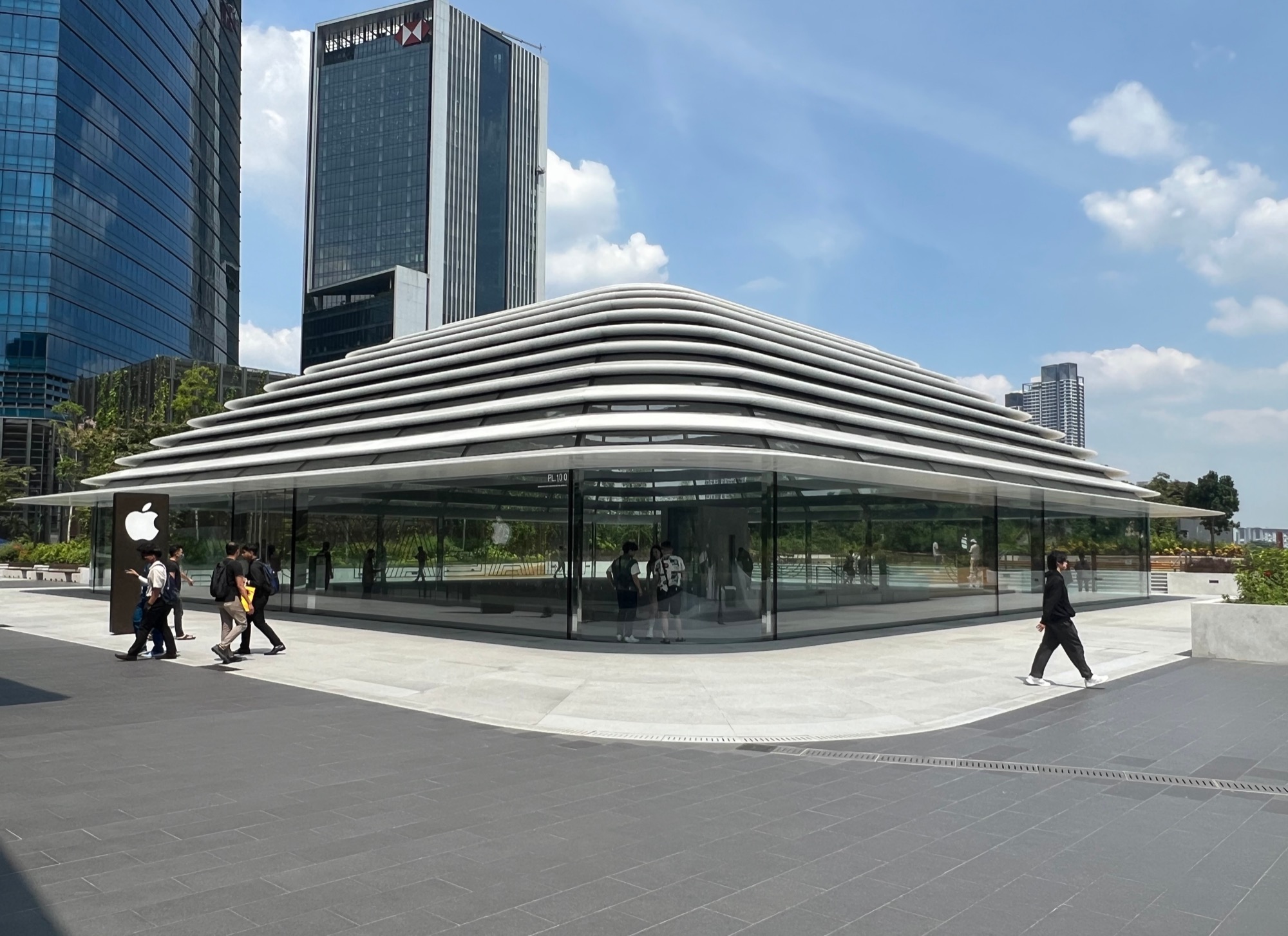
Embarking on a course in architecture requires a significant commitment, blending creativity, technical skill, and a deep understanding of design principles. The undergraduate course, spanning up to five years, is designed with an intensive and rigorous curriculum which includes design theory, design studios, architectural history, building technology, structural engineering, and urban planning. However, when considering whether to enroll in the course or not, opinions of the graduates are strikingly divided, as was revealed in a recent poll conducted on Instagram with 207 participants.

Among the respondents, 29 percent recommended that students pursue a career in architecture, whereas a significant 56 percent advised against it. Meanwhile, 15 percent remained unsure.
An analysis of the state of architecture admissions in India by A. Srivathsan, head of Centre for Research on Architecture and Urbanism, CEPT University and Chirayu Bhatt, Professor and Deputy Provost (Academics), CEPT University, reveals that, ‘the five-year undergraduate course is among the longest professional programmes. Architects end up studying longer and paying more for education.’ The study also exhibited a grave concern over the declining enrolment figures in the course leading to colleges shutting down in India. Following this shrinking graph, most participants in the poll advised against joining the course due to its rigorous demands and the high levels of stress associated with the profession. Additionally, they find the highly competitive job market disproportionate to the significant amount of time and money spent on the course.
“It’ll be excellent training, holistically,” shared Shivangi Buch, architect and conservationist. “Problem-solving, learning to think, and articulate are some of the most important skills for a well-rounded life. To practice or not is a different debate altogether.”
Conversely, Hinal Panchal, an architect turned PR and marketing professional, presents a different opinion. “Given the long working hours and low entry-level job compensation in our industry, I don’t usually encourage anyone to take up architecture. Unless one is extremely passionate and can rely on their family for financial support during the first few years, architecture can be quite challenging as a career.”
Where architecture has the potential for creativity and positive impact, the current academic and professional systems often undermine these ideals. Architect and writer, Achal Dodia, expresses a similar concern and is thus not sure whether he will suggest students to pursue architecture. “I would want to say yes to someone in a hope that the architecture academia (which is an ultimate scam) will not crush them and make them into these robots who defecate concrete buildings and consume trees but will find alternate ways to be kinder to the world and humanity.”
Along with their views on architecture, the respondents also talk about the current state of architecture profession in India. “Unless you have an inheritance or a firm set for you, be prepared to be overworked, underpaid, undervalued, and under respected and live a life lying to yourself that you’re doing it for the love of design, which by the way, is nonexistent amidst client demands; regulations; budgets; and deadlines.”
An anonymous comment describes architecture as “a truly beautiful craft and an infinitely more punishing profession.”
Architect Nikita Sheth on the other hand, sets the debate by mentioning that the field has growth potential mostly for entrepreneurs. “If you are expecting financial stability, there is very less security. Architectural jobs that pay decently are very few. If you are looking to grow as an entrepreneur, it is the right place to be. But you need to have the support systems for the first few years of struggle,” she says. “Those who pursue entrepreneurship experience positive emotions later in life, while I haven’t seen that in long-term job holders…”
Considering, the pay gap and toxicity in the field an anonymous respondent believes that “we need more passionate resilient young people with strong opinions, from all classes and backgrounds to rebel; revolt; and change the face of this field.” The person narrates, “I didn’t plan on learning architecture but now I can’t help but see architecture in everything…it has helped me to be sensitive, considerate, and critical human.” While another participant mentions, “Despite my passion for it, I would advise a strict no.”
Asmita Raghuvanshy, a young architect, agrees that there is a lot to learn, and the course is meaningful, “but the lack of security in the profession, especially as a fresher, leaves one insecure and a little helpless in the receiving of delayed gratification. For any first-generation architect – patience, passion and persistence is the key to making it.” She feels that studying the course is memorable and transformative, however, the pace of practice is much slower. On the other hand, an anonymous participant says, “Certainly not if you come from a middle-class service or working background. Architecture is only for the rich and connected now.”
The ‘unfair pay standards’ in the field is another critical reason for people suggesting against pursuing architecture. An anonymous respondent mentioned, “unsafe workspace, toxic work culture, low pay…Learning spaces too are not an exception in this sense.” While another participant expressed, “pay is so less as compared to the amount of work we do!”
“Industry’s pay standards make it impossible to survive in a metro city. People who do basic B.com data analytics course, etc., get paid way better fresher salary.”
Tarjani Samani, young architect and architectural journalist
Another comment by a respondent, Anubha Kakroo who is an architect and academician, expresses architecture to be one of the best educations that one can have. She feels that the only caveat is “the requirement of a strong vision and understanding of education, degree, profession, and career to make the most of it.”
Although, architect and academician, Rahoul B Singh is convinced that “architecture gives you more than you can imagine.” Architect Vaishnavi Jagtap also believes that there is a huge scope in this field along with many unexplored professions in architecture.
This split in perspectives underscores the complexity of the decision, prompting a deeper exploration into the pros and cons of pursuing a career in architecture. The professionals in the field often grapple with challenges including low client fee, meagre salaries, lack of work opportunities, recognition, long working hours, etc. While these concerns about the rigid and often unsustainable practices in architectural education and the profession are valid, there is also hope. By embracing innovative, sustainable, and humane design practices, future architects can reshape the industry for the better. Prospective students should weigh these factors carefully, considering both the challenges and the transformative potential that a career in architecture holds.
Image credits: Generated with Bing Image Generator




3 Responses
Survey sample is very very small.
Ashok Goel
Ashok Dilliwala Show on YouTube.
Excellent output, appropriate information, and beautifully presented.
A well balanced article. Thanks